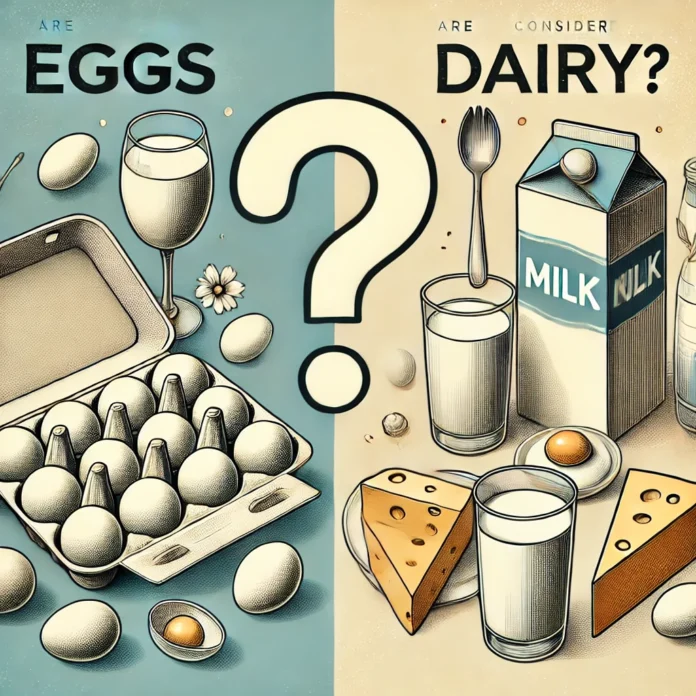When it comes to dietary categories, many people find themselves confused about where eggs fit in. A common question that arises is, “Are eggs dairy?” This confusion is understandable, given that eggs are often found in the dairy section of grocery stores. However, the simple answer is no—eggs are not considered dairy.
Understanding What “Dairy” Means
To clarify why eggs are not dairy, let’s first define what “dairy” actually means. Dairy products are derived from the milk of mammals, such as cows, goats, and sheep. Common dairy products include:
- Milk
- Cheese
- Butter
- Yogurt
- Cream
These products contain lactose, a sugar found in milk, and are a source of calcium and vitamin D. The primary characteristic of dairy products is that they are made from animal milk.
Why Eggs Are Not Dairy
Eggs, on the other hand come from birds—primarily chickens. They are not produced from milk and do not contain lactose. Nutritionally, eggs are rich in protein, vitamins, and minerals, but they lack the calcium and vitamin D that are typically found in dairy products. The confusion often arises because eggs and dairy are both animal products and are sometimes grouped together in the context of vegetarian diets. However, this grouping does not make eggs dairy.
Nutritional Comparison: Eggs vs. Dairy
While both eggs and dairy products are animal-derived and contain essential nutrients, their nutritional profiles are quite different. For instance:
- Eggs: High in protein and rich in B vitamins (especially B12), and a good source of healthy fats. They contain no lactose.
- Dairy: Contains protein, but is particularly noted for its calcium and vitamin D content, and it contains lactose, which some people are intolerant to.
Because of these differences, eggs are categorized under protein foods rather than dairy.
Dietary Considerations
For those who are lactose intolerant or allergic to dairy, eggs are usually a safe alternative as they do not contain lactose. Eggs are also a versatile ingredient in cooking and can be a valuable source of protein for those who do not consume meat.
To sum up, eggs are not dairy. They are a separate category of food, belonging to the protein group rather than the dairy group. This distinction is important for dietary planning, especially for those with specific dietary restrictions like lactose intolerance. Understanding the difference between eggs and dairy can help you make more informed choices about your diet.
By clarifying this common misconception, you can better navigate your nutritional needs and enjoy the benefits of both eggs and dairy—each in their appropriate context.



































